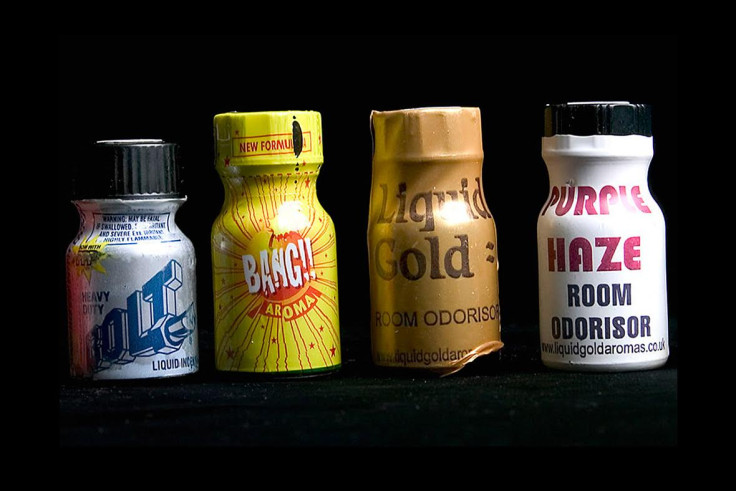I'm with Crispin Blunt, poppers need to be removed from the Psychoactive Substances Bill

Decision making ought to be evidence-based. Certainly law making should be. However in the absence of hard evidence one way or the other, should a government act?
That was the issue facing the Commons yesterday while debating the Psychoactive Substances Bill, which proposed a blanket ban on what are known as legal highs. A blanket ban based on the product's effects were deemed necessary because previous attempts to ban specific highs based on banning the formula used was ineffective. Every time the government banned product X by detailing the formula, the producer simply tweaked the formula. Hey presto, no longer illegal.
Hence the Bill bans substances that have a psychoactive effect – "a profound or significant effect on mental processes". The products sold in "head shops" can cause significant harm and death. However, poppers do not appear to be in the same league despite being classed a psychoactive product.
If you think poppers are a legal high only used by party mad substance abusers, think again! My colleague, the respected MP for Reigate, Crispin Blunt (chairman of the Foreign Affairs Select Committee) yesterday told the Commons he was a user of poppers. Crispin came out as a gay man in 2010, so in the media's eyes he's building a reputation for dramatic revelations.
Poppers (more accurately isopropyl nitrite and alkyl nitrite) basically cause a head rush and relax the muscles. They heighten sexual pleasure and – bluntly – they can be used to facilitate anal sex. So they have been widely used by gay men and women.
The Home Office believed they are dangerous having been implicated in 20 deaths since 1993 (which frankly is less than one a year). No evidence has been provided that poppers have caused death (a big difference from being implicated). In the few recorded deaths, the person has usually been using other substances. That's the rub. There is no real evidence one way or the other.
I therefore decided to do a bit of research of my own. I found UCLA had undertaken some work. Dr Timothy Hall at UCLA in Los Angeles gave evidence on the effects of isopropyl nitrite to Gay Times and found that "in the grand scheme of drugs of abuse, the risks from nitrite poppers are fairly benign... Isopropyl nitrite and other nitrite poppers appear to be far less harmful to the body in general than chronic alcohol consumption".
Compare the 20 poppers 'implicated deaths' over 22 years to the 8,400 alcohol-related deaths each year in the UK.
Then The New England Journal of Medicine, stated in 2010: "To our knowledge, over the past 10 years, there have been only two case reports of visual loss after inhalation of poppers, and the anatomical basis of this injury remains elusive."
In the absence of medical evidence or hard facts in the UK, I wrote to the Advisory Council on the Misuse of Drugs. The chairman could not have been more blunt. He said poppers were "not seen to be capable of having harmful effects". The Home Affairs Select Committee, National Aids Trust and others opposed the inclusion of poppers.
So I support the view that there is a need to provide up-to-date empirical evidence. There also needs to be proportionality. Everything we do carries a risk, whether it is smoking or anything else. If one drinks bleach, one will be harmed, but we are not proposing to ban bleach. When we seek to control, regulate or ban anything, we must deal with it in the round and consider the proportionality of doing so.
When we are talking about risks – I have mentioned proportionality – it is important that we do not start banning things on the basis of one or two incidents. There has to be a significant risk of significant harm to a significant number of people, otherwise we would be banning cigarettes and alcohol tomorrow.
The empirical evidence must weigh up the benefits to couples in a relationship not just the risks and side effects. I've noted that poppers can be of benefit during sex but this is not just about the physical side of a relationship. If people want their relationship to be as intimate as possible and poppers facilitate that, they are an important element in the emotional well-being of that couple. Therefore, we have to recognise the emotional and mental health benefits that the use of poppers in a relationship can bring.
The evidence ought to have been gathered and reviewed before it was proposed to ban poppers. We are now having to unravel an avoidable row and an avoidable legislative mess. Government is erratic, messy and one doesn't always end up in the position intended. A bit like sex really.
Mike Freer is Member of Parliament for Finchley and Golders Green.
© Copyright IBTimes 2025. All rights reserved.






















